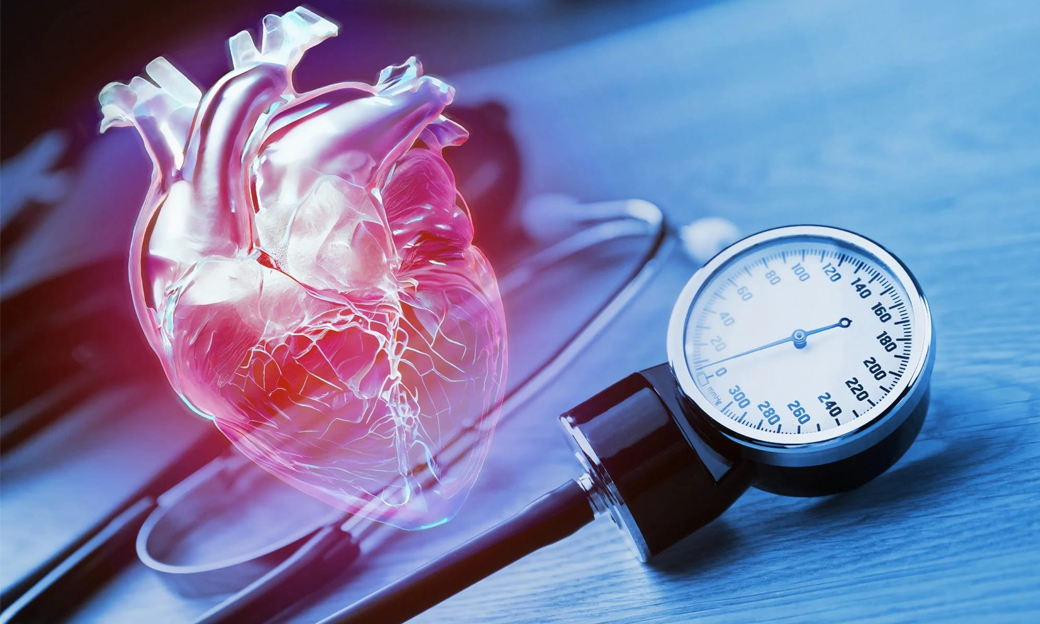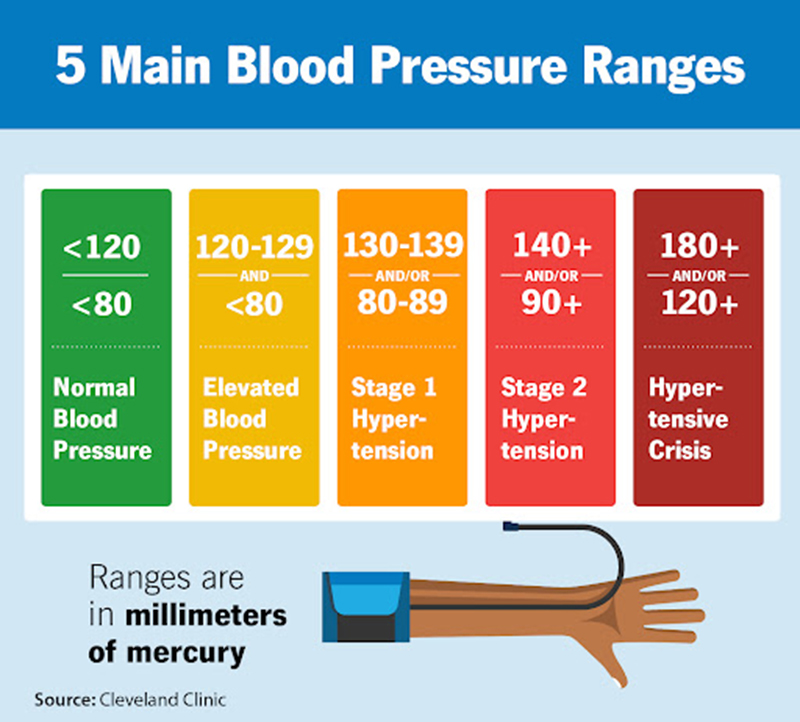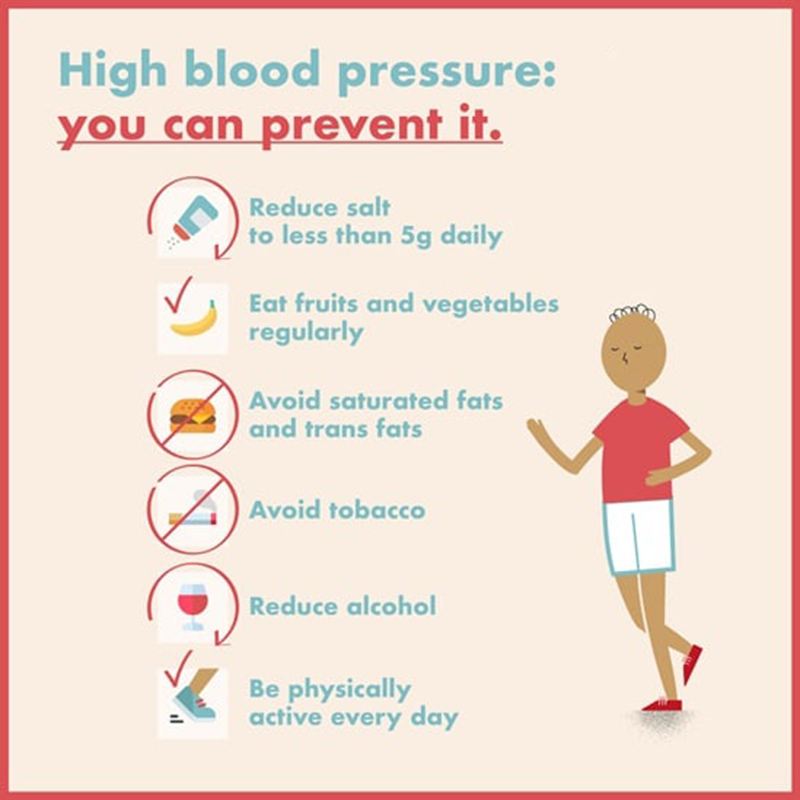
High blood pressure, also known as hypertension, is not just a number on a medical report; it's a crucial indicator of your overall health. Many people underestimate the significance of maintaining healthy blood pressure levels, but understanding its implications is vital for preventing serious health complications.
What is Blood Pressure and What's a Normal Level?
Blood pressure is the force exerted by the blood against the walls of the arteries as the heart pumps it throughout the body. It's measured in millimeters of mercury (mmHg) and is represented by two numbers: systolic pressure (the pressure when the heart contracts) over diastolic pressure (the pressure when the heart relaxes between beats).
A normal blood pressure reading typically falls around 120/80 mmHg. However, it's essential to recognize that blood pressure can fluctuate throughout the day due to various factors such as stress, physical activity, and diet. Consistently elevated readings, especially above 130/80 mmHg, may indicate high blood pressure.

Why is High Blood Pressure Harmful?
High blood pressure is often referred to as the "silent killer" because it typically doesn't present noticeable symptoms until it reaches advanced stages. However, the damage it inflicts on the body over time can be severe and life-threatening. Here's why high blood pressure matters:
Increased Risk of Cardiovascular Disease: High blood pressure places added strain on the heart and blood vessels, increasing the risk of heart disease. It can lead to conditions such as coronary artery disease, heart attack, and heart failure, as the heart struggles to pump blood effectively against elevated pressure levels.
Stroke: Hypertension can cause damage to the blood vessels in the brain, making them more prone to rupture or blockage. This increases the risk of a stroke, which occurs when blood flow to the brain is interrupted, leading to brain damage or death.
Kidney Damage: The kidneys play a crucial role in regulating blood pressure by filtering waste and excess fluids from the blood. Persistent high blood pressure can damage the blood vessels in the kidneys, impairing their function and potentially leading to kidney failure.
Vision Problems: Elevated blood pressure can damage the small blood vessels in the eyes, leading to vision impairment or even blindness over time.

What Leads to High Blood Pressure?
Several factors can contribute to the development of high blood pressure, including:
Unhealthy Lifestyle Choices: Poor diet, lack of physical activity, excessive alcohol consumption, and smoking are all lifestyle factors that can contribute to high blood pressure.
Genetics: A family history of hypertension can increase your risk of developing high blood pressure.
Age: Blood vessels tend to lose elasticity as we age, leading to an increased likelihood of high blood pressure.
Underlying Health Conditions: Certain medical conditions, such as obesity, diabetes, and kidney disease, can contribute to high blood pressure.
How Can You Reduce Your Blood Pressure?
While high blood pressure can be a serious health concern, the good news is that it's often manageable with lifestyle modifications and, in some cases, medication. Here are some effective strategies for reducing blood pressure:
Healthy Diet: Adopting a diet rich in fruits, vegetables, whole grains, lean proteins, and low-fat dairy products can help lower blood pressure. Limiting sodium intake, processed foods, and sugary beverages is also essential.
Regular Exercise: Engaging in regular physical activity, such as brisk walking, swimming, or cycling, can help lower blood pressure and improve overall cardiovascular health.
Maintain a Healthy Weight: Losing excess weight, if necessary, can significantly lower blood pressure. Even modest weight loss can have a positive impact on blood pressure levels.
Limit Alcohol Consumption: Drinking alcohol in moderation or abstaining altogether can help lower blood pressure.
Quit Smoking: Smoking can raise blood pressure and damage blood vessels. Quitting smoking can improve blood pressure and reduce the risk of heart disease and stroke.
Stress Management: Practicing relaxation techniques such as deep breathing, meditation, yoga, or spending time doing activities you enjoy can help reduce stress and lower blood pressure.
Medication: In some cases, lifestyle changes alone may not be sufficient to control high blood pressure. Your doctor may prescribe medication to help lower your blood pressure and reduce your risk of complications.

High blood pressure is a significant health concern that should not be ignored. Understanding its implications and taking proactive steps to manage and reduce it can significantly improve your overall health and well-being. By adopting a healthy lifestyle, including a balanced diet, regular exercise, stress management, and avoiding unhealthy habits, you can lower your blood pressure and reduce your risk of developing serious health complications associated with hypertension.
Subscribe means that you have read and agree to the Privacy Policy.
Subscribe means that you have read and agree to the Privacy Policy.
Copyright © Shenzhen Pango Medical Electronics Co.,Ltd, Ltd. All Rights Reserved.